From Soba to Santa: Celebrating Christmas in Japan
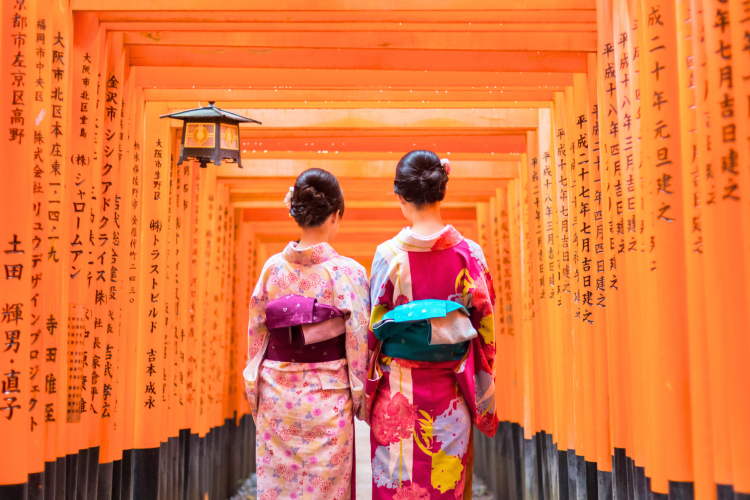
Christmas in Japan is really something else. It’s a fascinating blend of Western and Japanese traditions which creates a unique holiday experience filled with lights, special foods and special traditions.
Interestingly, Statistica found that “the majority of Japanese adhere to Shintoism, a traditional Japanese religion focusing on rituals and worship at shrines.” A close minority of the population practices Buddhism and neither religion practices Christmas as a spiritual holiday.
So while Christmas may not have deep religious significance for the majority of the population, it has become a beloved time for celebration. Is December 25 a holiday in Japan? No, and yes. It’s not an official federal holiday, but since the day is so beloved, many companies give employees time off on the 25th. Let’s take a closer look at how this holiday is celebrated across Japan.
Jump to Section
- When Was Christmas First Celebrated in Japan?
- Japanese Christmas Traditions
- Christmas Decorations in Japan
- Festive Japanese Foods
- Where To Spend Christmas in Japan
When Was Christmas First Celebrated in Japan?
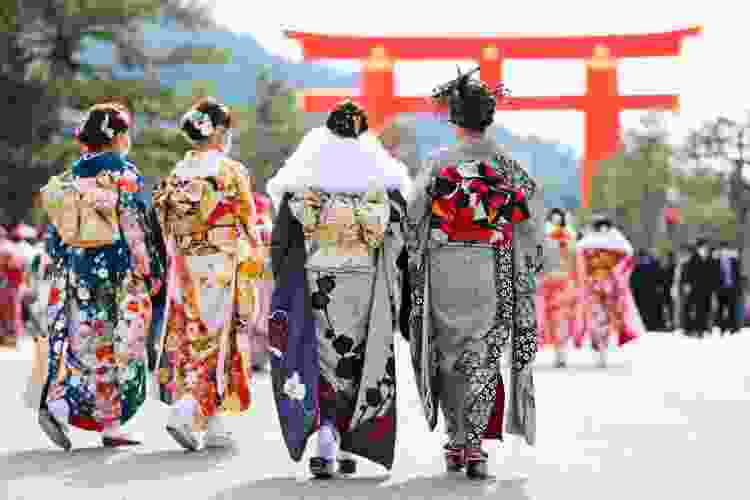
Christmas has a long history in Japan, though its early celebrations were quite different from what we see today and the history of Christmas in Japan is fascinating. The first Christmas in Japan was likely celebrated in the mid-16th century which was around the time when a Jesuit missionary, Francis Xavier, introduced Christianity to the country. He arrived in Kagoshima in 1549 and along with spreading Christianity, he also introduced the concept of Christmas to the Japanese.
However, during the Edo period (1603-1867), Christianity was banned and public celebrations of Christmas with it. Many Christians went underground, practicing their faith in secret and Christmas largely disappeared from public view.
It wasn’t until Japan reopened to the West during the Meiji Period (1868-1912) that Christmas resurfaced. Western culture began to influence Japan once again and records from 1906 show an early mention of Santa Claus in a Japanese newspaper. Still, the holiday was celebrated quietly, especially after the death of Emperor Taisho on December 25, 1926, when the date became a subdued public holiday.
While Christmas may have been slow to gain traction in Japan, by the late 20th century, it became a popular celebration. Today, Christmas in Japan is a highly anticipated time of year, though it is not a religious holiday for most.
Christmas Traditions Around the World: When It Was First Celebrated
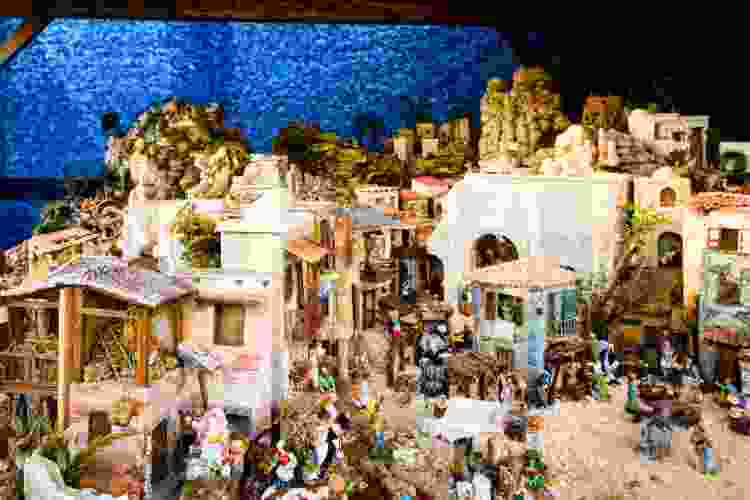
Japan isn’t the only country that celebrates Christmas, with many Christmas traditions coming from around the world. You can make some Christmas crafts or pick up some unique Christmas gifts in one of the following countries.
- Christmas in Mexico: First celebrated after the Spanish conquest in the 16th century, with a focus on religious events such as Las Posadas, a nine-day festival leading up to Christmas Eve.
- Christmas in Germany: Celebrated since the Middle Ages, Germany is credited with many traditions like Christmas markets and the Advent calendar.
- Christmas in Australia: Christmas arrived with British settlers in 1788, bringing with it traditional Christmas feasts, though today, it's celebrated in summer with barbecues and outdoor festivities.
- Christmas in Italy: Celebrated since ancient Christian times, Italy hosts some of the world’s oldest nativity displays and significant religious events like Midnight Mass.
- Christmas in France: First celebrated during the Middle Ages, France has deep-rooted traditions such as elaborate Christmas meals and the famous “Buche de Noël” cake.
Japanese Christmas Traditions
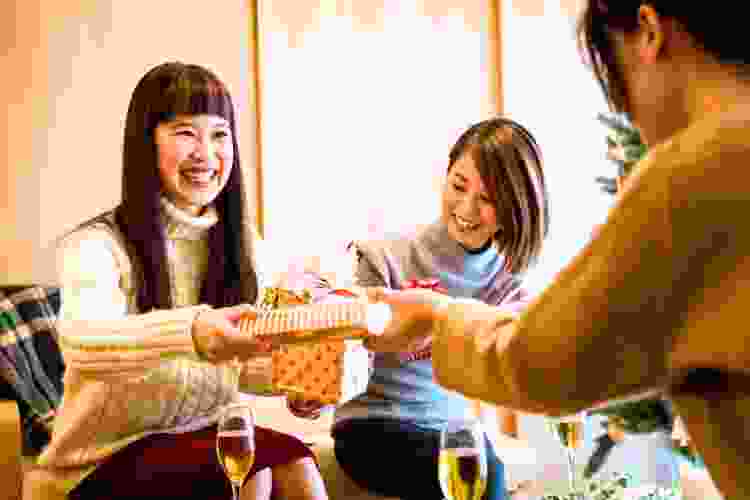
How is Christmas celebrated in Japan? Well, Christmas in Japan may not have a religious aspect for most, but the traditions surrounding the holiday have taken on a life of their own. What are 5 facts about Christmas in Japan? Read on to discover Christmas traditions in Japan.
1. Christmas is a romantic holiday
In Japan, Christmas is celebrated more like Valentine’s Day, with a focus on couples rather than family gatherings. Christmas Eve is a popular time for couples to enjoy romantic dinners and exchange gifts, making it a night for celebrating relationships.
2. Gift-giving is centered on couples
While children may receive presents from "Santa-san," the main gift exchanges happen between couples. Common gifts include jewelry, clothes and romantic surprises, emphasizing the holiday's focus on love and relationships.
3. Christmas Eve is a significant date night
Christmas Eve holds more importance than Christmas Day itself. It’s a time for couples to go out on special dates and many restaurants and hotels offer romantic packages to cater to this tradition.
4. Santa Claus exists (but primarily for kids)
Children in Japan recognize "Santa-san," but he doesn’t play as prominent a role as he does in Western cultures. The holiday spirit is more about romantic connections than the excitement of Santa delivering gifts.
5. Western elements infused with Japanese culture
While many Christmas traditions in Japan borrow from the West, they are blended with local customs. The result is a distinctively Japanese take on Christmas, where traditional Western ideas like Santa and gift-giving are adapted to fit local preferences and cultural practices.
Christmas Decorations in Japan

Christmas decorations in Japan often combine Western influences with traditional Japanese touches. Homes and public spaces are adorned with decorations and Christmas light shows that reflect both cultures.
Christmas trees in Japan are typically smaller and more minimalistic compared to their Western counterparts. They are often decorated with wooden ornaments featuring Japanese motifs like fans, cranes or traditional dolls. These unique decorations bring a touch of Japanese craftsmanship to the Western tradition of tree decorating.
Ornaments often have a global flair but retain local themes, with popular designs including lanterns, cherry blossoms and even anime characters. Japan also has a love for snow globes, especially those featuring Disney or Sanrio characters. These are popular holiday decorations and are often given as gifts during the season. They make excellent Christmas gifts for teens.
Light displays are particularly stunning in Japan, with cities like Tokyo, Kobe and Osaka known for their elaborate illuminations. These light displays are a highlight of the holiday season, drawing crowds to witness the dazzling shows.
The Kobe Luminarie, in particular, is famous for its breathtaking lights, designed to commemorate the 1995 Great Hanshin Earthquake. Tokyo Midtown Christmas is another notable display. It features stunning light shows set against the city's modern skyline.
Festive Japanese Foods
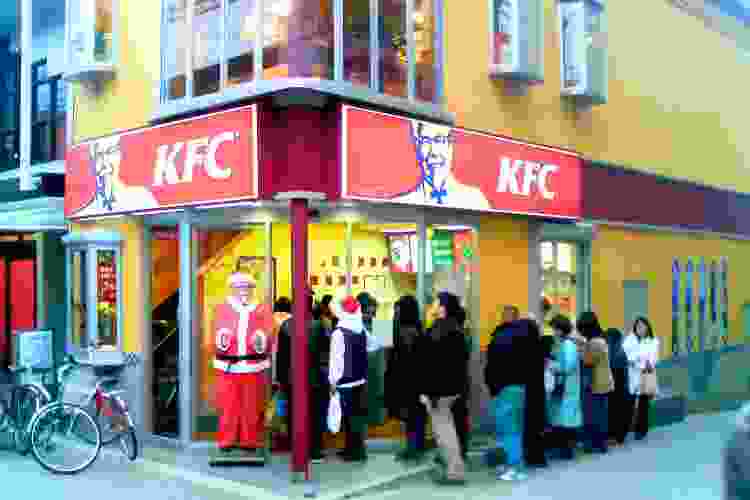
Christmas food in Japan is quite different from the traditional feasts seen in other parts of the world. KFC fried chicken has become the go-to meal for Christmas Eve, with families and couples alike flocking to the nearest KFC to pick up their pre-ordered meals.
Why does Japan celebrate Christmas with KFC? It’s all thanks to a 1974 marketing campaign called “Kentucky for Christmas.” With traditional Christmas meals like turkey being scarce, KFC promoted fried chicken as a festive alternative. The campaign resonated with the Japanese public and now it’s a key part of their holiday celebration.
Another must-have dish is Christmas cake, a light and fluffy sponge cake covered in whipped cream and topped with fresh strawberries. This cake is seen as a symbol of the holiday season in Japan and it’s sold everywhere, from local bakeries to high-end patisseries.
Some families still enjoy more traditional Japanese dishes such as soba noodles or hot stews. Pizza, often seen as a Western treat, is also a popular addition to Christmas celebrations. For dessert, wagashi, a traditional Japanese sweet made from rice flour, often makes an appearance alongside the festive cake.
Many of these foods may seem surprising for Christmas, but they reflect the Japanese ability to adapt and infuse foreign customs with local traditions, creating a unique holiday experience.
Where To Spend Christmas in Japan
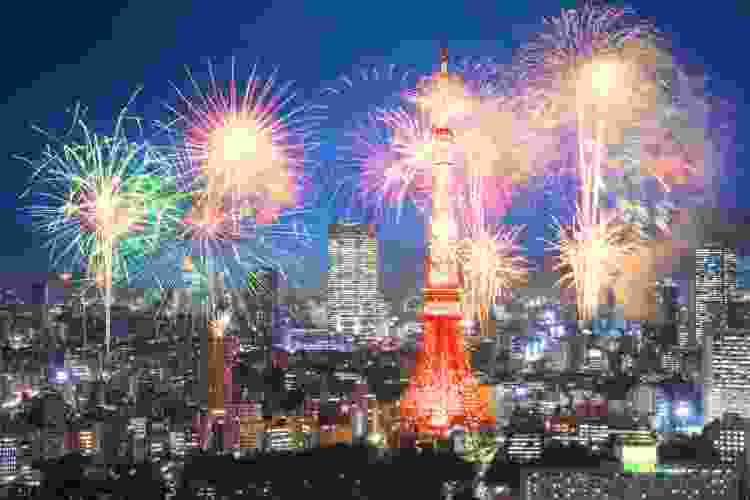
Is Japan a good place to visit during Christmas? The country offers a variety of fantastic places to enjoy Christmas! Each region showcases its unique twist on the holiday. Tokyo is a must-visit during the season, with incredible light displays like those at Tokyo Midtown and Roppongi Hills. The city is alive with Christmas markets, skating rinks and shopping opportunities.
Kobe is home to the famous Kobe Luminarie, a light festival that illuminates the city in honor of those who lost their lives in the 1995 earthquake. The display is nothing short of magical, making Kobe one of the top destinations for Christmas lights in Japan.
Looking for a romantic getaway? Osaka offers a blend of traditional and modern experiences. The city’s Umeda Sky Building hosts a stunning Christmas market and couples can enjoy breathtaking views of the city from the observation deck.
During the Christmas season, the weather in Japan can be cold, particularly in northern areas where snow is common. In cities like Tokyo and Osaka, temperatures usually range from 5-10°C (41-50°F), making it chilly enough for coats and scarves but mild compared to European or North American winters.
Christmas in Japan is a delightful mix of tradition, romance and modern influences. Japan has embraced Christmas in its own special way, so admire the festive decorations and enjoy a slice of Christmas cake on your winter holiday.
For even more fun Christmas ideas, check out other experiences happening on Classpop!

